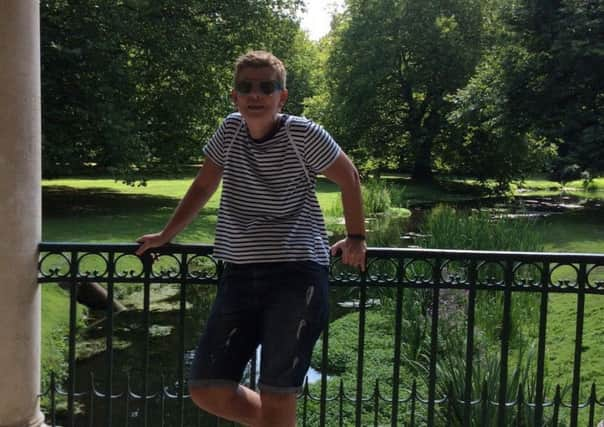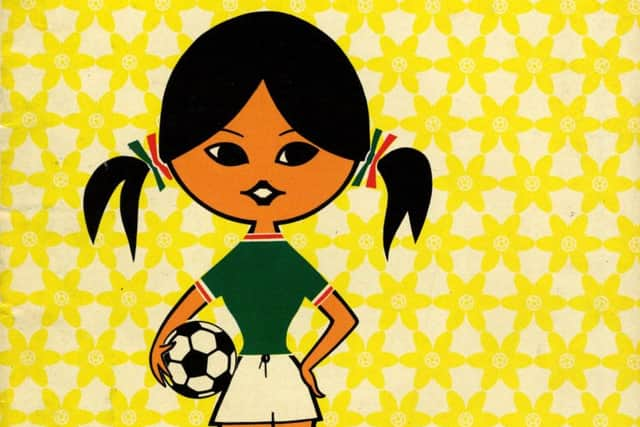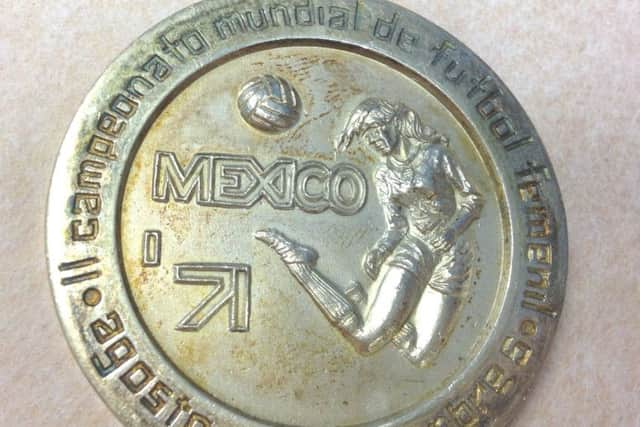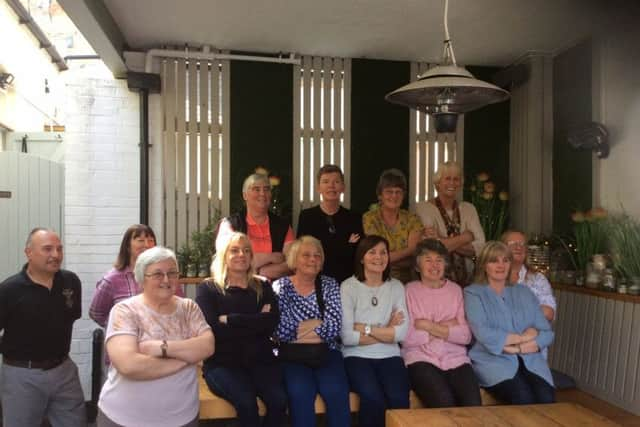‘My time as a 15-year-old girl playing football in 1971 Mexico World Cup’


Chris Lockwood can still recall the camera flashes that greeted her as a teenager when she disembarked an aircraft in Mexico City in 1971. “I think there’s someone famous on this plane,” she turned to her teammates and said. But it was them that the photographers had turned out to capture - the squad representing England at the Women’s World Cup. “Mexico had got the football bug and the crowds were massive,” Chris recalls of the competition. “I think they had a fever for football...they just got it. It didn’t matter that we were women, it was just football.”
The unofficial tournament was played 20 years before FIFA sanctioned the idea for women, with six teams competing at the Azteca Stadium, the very same venue that had hosted much of the men’s championship 14 months earlier.
Advertisement
Hide AdAdvertisement
Hide AdThat competition is still renowned today, no doubt in part thanks to Pele and the famous Brazil vs Italy final. But despite football fever sweeping the host nation again a year later, the fan, media and commercial attention the women’s game attracted was shortlived - and until recently, the tournament has been seemingly all but forgotten about here in England.


Chris was one of 14 women representing this country who ventured more than 5,000 miles to take part, leaving family and friends back in the UK. Only since last year has she begun to share her story publicly, after renewed focus on the history of the women’s game, including from the National Football Museum in Manchester. She will be speaking about her experiences alongside fellow teammates Leah Caleb, then 13, and Gill Sayell, then 14, at an event in Sheffield this evening.
“Women’s football never really got any publicity until the 1990s,” says Chirs. “We just knew we had done it [played in the world cup] ourselves and we were content about that. Now we are telling our story and people are also interested we realised, crikey, why did we keep it to ourselves? But if we had said it years ago, there wasn’t a platform for it.”
Little support


Advertisement
Hide AdAdvertisement
Hide AdThere was little institutionalised support for the women’s game at the time of that competition, including in England. Since 1921, the Football Association (FA) had banned women from playing on Football League grounds across the country, deeming the game to be “quite unsuitable for females”.
“Women’s football [in England] at that time was banned from football grounds so we had to play in parks,” Chris says. “We used to raise money so we could pay for a pitch and a referee - and then the next minute we are flying on an aeroplane to Mexico.”
Chris was just 15 when she took part, her love of the sport having developed early in childhood. She would play with the boys in the playground at primary school where she grew up near Luton and also with her cousins when she returned to her birthplace of Bolton Upon Dearne in South Yorkshire, during the summer holidays.
“I wasn’t allowed to play for a school football team because it was for boys and when I went to senior school, I wasn’t allowed to play at all,” she says. “Quite often I used to be banned from games because I would kick the ball.”


Huge crowds
Advertisement
Hide AdAdvertisement
Hide AdIt was whilst playing for girls team Chiltern Valley, run by Harry Batt and his wife June, that she was picked to play in the tournament. Forward-thinking Harry saw the potential in international women’s football and was the man behind England’s 1971 team, instrumental in arranging for a squad to compete, helped by his ability to speak multiple languages. He selected players from the Chiltern club and other ladies teams across Britain to take part. “He had a big vision for women’s football,” says Chris, now 63. “He was brilliant and it was thanks to him that we went.”
The turnout to their early morning training sessions during the squad’s five weeks in Mexico was greater than for girls matches they played back at home, Chris recalls. “We couldn’t believe [how big it was]. We were on the television, we had police escorts, we had to sign autographs. We stepped into a world we never knew.”
A crowd of around 110,000 saw Denmark beat Mexico in the final, rivalling the turnout for the men in the 1970 tournament. England lost all three matches, but some 80,000 people watched the women’s team take on the host nation. It is possible the squad’s participation contributed to the FA relaxing its rules that year, lifting its 50-year ban that prevented women playing on the grounds of affiliated clubs later.
Tournament impact
But Chris was surprised the competition did not have greater impact, “when the groundwork had been done”. “This was a stepping stone for the women’s game to move on but it didn’t,” she says. “In fact, it has only just started coming on in the last few years really. “I had something fantastic but all the young girls that never got anywhere with it, I feel sad for them.”
Advertisement
Hide AdAdvertisement
Hide AdIt wasn’t until 1991 that the first FIFA Women’s World Cup was held and the Women’s Football Association, founded in 1969, launched a national league - and it was another six years before the FA outlined its plans to develop the women’s game from grassroots to elite level. “Throughout, some women’s footballers have been out of this world,” says Chris, now retired from a job in IT at Vauxhall Motors.
“But there was no one to give the sport a voice really, which is sad. I think myself, Leah and Gill consider we were very lucky. To be in the right place at the right time was fantastic. When I think the players we have seen and looked up to and how brilliant they were, they never had that stage to play on.”
Forgotten World Cup
For the three women, it was back to reality when they landed on British soil. In stark contrast to the media attention and fans following their coaches in Mexico, Chris recalls just a solitary photographer waiting for them as they touched down and says they were temporarily banned from playing football for attending the unofficial competition.
“We didn’t have much in the way of newspaper coverage and when we went back to school, none of our schools mentioned it. So none of us really talked about it. When we have all met up since, we all say the same thing - it is normally our parents or partners that bring it up. We’ve sort of buried it.”
Advertisement
Hide AdAdvertisement
Hide Ad“Our parents were proud of us without a doubt,” she adds. “They knew we were football barmy. My parents and grandparents were immensely proud and even now they are so proud, especially now our story is coming out.
“We have always had moral support and that was enough for us - that and the love of the game.”
The women hope to trace girls from the original squad, including Jean Breckon, who lived in the Skipton area of Yorkshire. Now in touch with Harry’s son Keith, who was a mascot in Mexico, they also want to highlight what he and June did for the women’s game.
“We want to give Harry recognition for what he did for us and women’s football in general. He did a marvellous job and on his own really, with the support of his wife. They worked hard to achieve what they did - we were just young girls having the opportunity to play football.”
Advertisement
Hide AdAdvertisement
Hide AdChris, who continued to play football - without ever earning a penny for the sport - until her late 20s, Leah and Gill will about their experiences and how women’s football has changed at a public event at the University of Sheffield today. Professor David Wood, from the University, has organised the talk with Professor Jean Williams, the Academic in Residence at the National Football Museum.
The Forgotten World Cup: The England Women’s Team and Mexico 1971, is being held in the Diamond building from 6pm until 7.30pm.